Question:
We are located in a town where a majority of the homes are pre- 1940. How do the new lead rules apply to home owners who do their own work? (RRP DIY)
Unfortunately, the RRP rules do not apply to home owners doing their own work! Also, the rule does not apply if the work is being done by volunteers. The rule only applies if the work is being done for compensation. If volunteers are being supervised by a paid supervisor, the rule does apply.

Homeowners have no responsibilities under the new EPA RRP rules. They can do their own work as they please, but are "encouraged" to follow lead safe practices. If home owners are considering doing their own work, contractors can suggest they read Lead Paint Safety: A Field Guide for Painting, Home Maintenance, and Renovation Work. This booklet published by HUD will make them aware of lead hazards and the risks they will take if they do their own work. It also includes very thorough instructions, for working lead safe, specific to performing a variety of projects. This booklet may help many homeowners realize they are getting in over their head and should hire a professional. The booklet might also be a great resource for contractors trying to collect effective and innovative lead safe work practices.
Contractors are required to be a certified firm to offer and or sell the work, but the homeowner does not in any way have responsibility to only hire a certified firm. There is no consequence to the consumer for hiring someone who works illegally. If this is a challenge for you, it would be pointless to express your concerns to an EPA employee. They don't make the laws or rules. Rather, you should speak with your congressman. Congress was and is responsible for this rule, it's contents and the rule's lack of insight into the realities of implementation in the real world.
sell the work, but the homeowner does not in any way have responsibility to only hire a certified firm. There is no consequence to the consumer for hiring someone who works illegally. If this is a challenge for you, it would be pointless to express your concerns to an EPA employee. They don't make the laws or rules. Rather, you should speak with your congressman. Congress was and is responsible for this rule, it's contents and the rule's lack of insight into the realities of implementation in the real world.

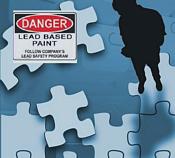 Looking for accurate information about the EPA RRP rule?
Looking for accurate information about the EPA RRP rule? 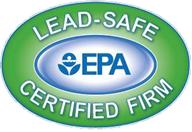
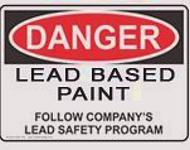 According to the Q&A area of the EPA's web site, before you can offer or do work on pre-1978 homes, you must be a Certified Firm (
According to the Q&A area of the EPA's web site, before you can offer or do work on pre-1978 homes, you must be a Certified Firm ( NOTE: Rhode Island is one of many states and or tribal authorities that has been granted and or is seeking authorization by the EPA to administer the RRP program. The opt-out provision is/will not be allowed in RI. If you know of the status of the opt-out in RI and or other states, please contribute that information along with a source/link to confirm accuracy.
NOTE: Rhode Island is one of many states and or tribal authorities that has been granted and or is seeking authorization by the EPA to administer the RRP program. The opt-out provision is/will not be allowed in RI. If you know of the status of the opt-out in RI and or other states, please contribute that information along with a source/link to confirm accuracy. 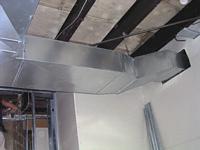 Firms performing tasks that disturb no painted surfaces whatsoever do not need to be EPA Certified Firms. However, since conditions at the job site may be difficult to predict, EPA strongly recommends that all firms involved in the renovation be certified and use properly trained and certified personnel. For example, a firm hired to install an HVAC system after demolition of painted surfaces has taken place may find that to complete the job painted surfaces need to be disturbed. The HVAC firm may not engage in activities that disturb painted surfaces if it is not certified.
Firms performing tasks that disturb no painted surfaces whatsoever do not need to be EPA Certified Firms. However, since conditions at the job site may be difficult to predict, EPA strongly recommends that all firms involved in the renovation be certified and use properly trained and certified personnel. For example, a firm hired to install an HVAC system after demolition of painted surfaces has taken place may find that to complete the job painted surfaces need to be disturbed. The HVAC firm may not engage in activities that disturb painted surfaces if it is not certified.  As every renovation job is different, it is up to the firm acting as the general contractor to determine what activities are within the scope of the renovation and to ensure that other firms are properly trained and certified for the tasks they will be performing. All firms, including the firm acting as the general contractor, are responsible for making sure the renovation is performed in accordance with the RRP work practice standards, including keeping containment intact and making sure lead dust and debris do not leave the work site. General contractors should keep in mind that if a firm hires a subcontractor that fails to follow the work practice standards or otherwise violates the Renovation, Repair, and Painting rule, the firm that hired the subcontractor is also responsible for the violation.
As every renovation job is different, it is up to the firm acting as the general contractor to determine what activities are within the scope of the renovation and to ensure that other firms are properly trained and certified for the tasks they will be performing. All firms, including the firm acting as the general contractor, are responsible for making sure the renovation is performed in accordance with the RRP work practice standards, including keeping containment intact and making sure lead dust and debris do not leave the work site. General contractors should keep in mind that if a firm hires a subcontractor that fails to follow the work practice standards or otherwise violates the Renovation, Repair, and Painting rule, the firm that hired the subcontractor is also responsible for the violation.
 sell the work, but the homeowner does not in any way have responsibility to only hire a certified firm. There is no consequence to the consumer for hiring someone who works illegally. If this is a challenge for you, it would be pointless to express your concerns to an EPA employee. They don't make the laws or rules. Rather, you should speak with your congressman. Congress was and is responsible for this rule, it's contents and the rule's lack of insight into the realities of implementation in the real world.
sell the work, but the homeowner does not in any way have responsibility to only hire a certified firm. There is no consequence to the consumer for hiring someone who works illegally. If this is a challenge for you, it would be pointless to express your concerns to an EPA employee. They don't make the laws or rules. Rather, you should speak with your congressman. Congress was and is responsible for this rule, it's contents and the rule's lack of insight into the realities of implementation in the real world.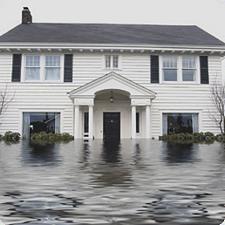 Insurance companies use detailed estimating programs to set the rates they will reimburse for repairs. When we go trying to fix up people's soggy basements and flooded first stories after this big wet one, can we assume that we are disturbing lead? And if so, are they going to want us to put up plastic and stuff amid all that soggy mess? And if so (which I doubt), are the insurance companies ready to pay the added cost of this?
Insurance companies use detailed estimating programs to set the rates they will reimburse for repairs. When we go trying to fix up people's soggy basements and flooded first stories after this big wet one, can we assume that we are disturbing lead? And if so, are they going to want us to put up plastic and stuff amid all that soggy mess? And if so (which I doubt), are the insurance companies ready to pay the added cost of this?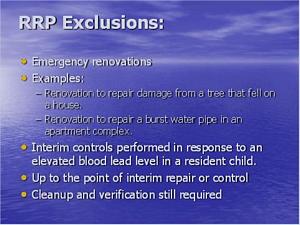
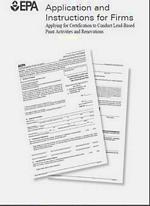
 Thanks for your message. You are in a tough spot. It might not make you feel any better, but you are in the majority of contractors who have been blindsided by this new rule.
Thanks for your message. You are in a tough spot. It might not make you feel any better, but you are in the majority of contractors who have been blindsided by this new rule.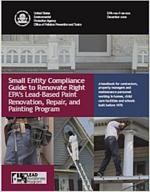 Compliance Guided to Renovate Right
Compliance Guided to Renovate Right


